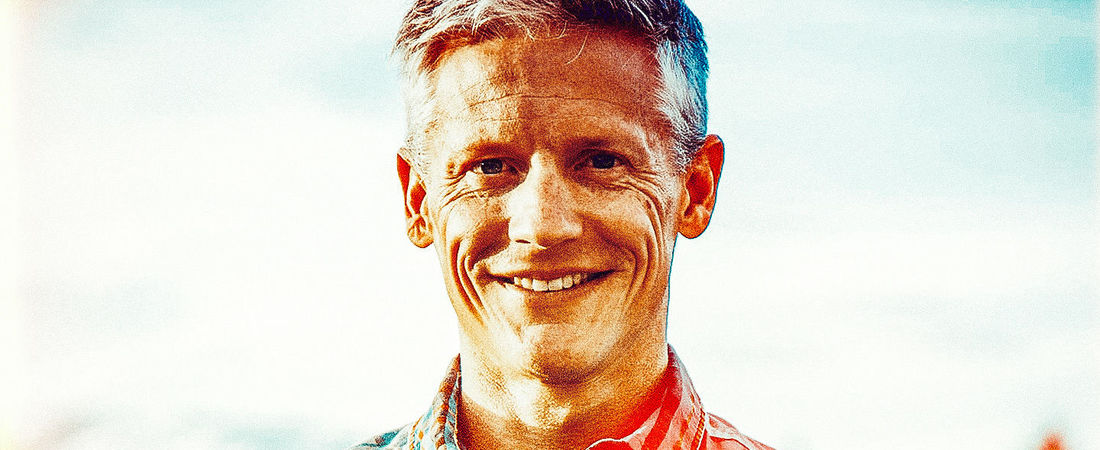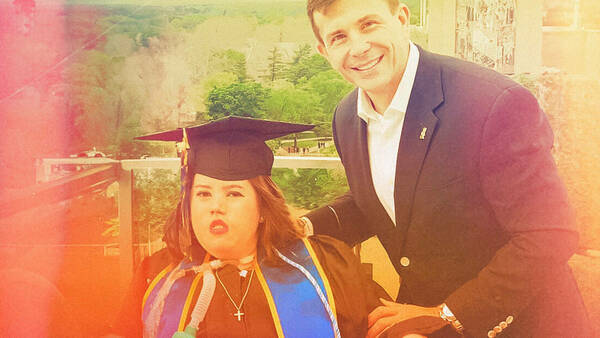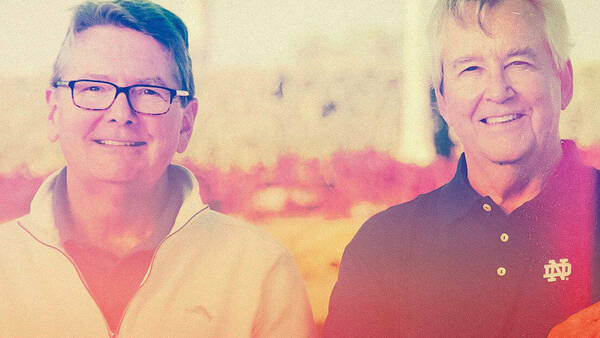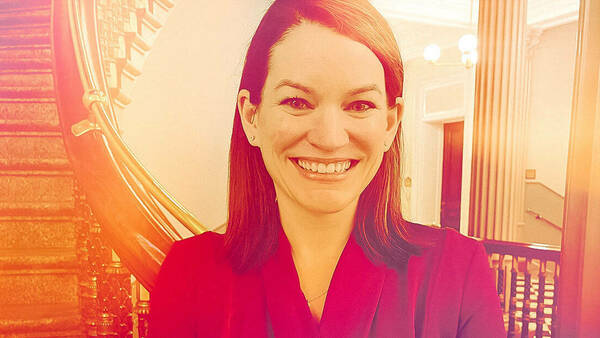As a high schooler, Scott James ’99 MBA had a Greenpeace poster on his wall depicting a penguin looking up at a human and one single word: Détente. An easing of tensions. The poster ended up foreshadowing James’ life’s work, as the prominent social entrepreneur, executive coach, and advisor has committed himself to focusing on “people helping people” and “people helping planet” projects.
Nowadays, James is on a mission to not only help us all be better prepared for when disaster strikes, but also to save the planet outright. He was recently asked by the Federal Emergency Management Agency (FEMA) to present his 2017 book Prepared Neighborhoods: Creating Resilience One Street at a Time at their national training symposium and he is widely regarded as one of the leading social entrepreneurs in the country. His film studio created the opening videos for the United Nations Climate Change Summits as well as the Netflix nature-based series “Moving Art,” and his work in the fair trade sector has benefited thousands of producers. James is also known for his nonprofit organization Bainbridge Prepares, which has become a model for sustainable, prepared living that can come out of community interaction and teamwork.
“You cannot afford to not know Scott James,” is how one former colleague put it. The man has always been committed to a cause greater than himself, and he is trying to help change the world for the better one day at a time through various sustainability efforts. He is all about the future, and wants to increase the sustainability of both our planet and its people.
Growing up, James’ father was the one who first got him involved with the business world. James describes his father as a “brilliant mathematician” who taught him marketing lessons at the dinner table, which included a heavy dose of ethics. His father’s quantitative perspective grew out of his time spent working for companies such as General Electric, RCA, and JBL. Ultimately, the idea of ethical business is what drew James to Notre Dame.
James has built his career on sustainability and social entrepreneurship, but there was little information about this sector available during James’ time as an undergraduate student at Baylor or a graduate student at Notre Dame. The closest thing was ethics, and the ethical thread that ran through every class at Notre Dame was incredibly enticing to a kid who grew up contemplating these kinds of ideas at dinner. From this foundation, it was easy for James to then branch out and explore social justice and environmental justice.
This shift in perspective is one that James believes was then further instilled in him by Carolyn Woo, the former Martin J. Gillen Dean of the Mendoza College of Business, as well as Joe Urbany, who was his primary marketing professor at Notre Dame. Later on, Woo brought James back to serve as a member of the Graduate Alumni Board with a young alumni appointment to provide a “voice of sustainability.”
After Notre Dame, James went to work in marketing at Visio before it was acquired by Microsoft. After several years at Microsoft, the size of the technology powerhouse became off-putting for James and he turned to entrepreneurship. Soon after, he began working with fair trade coffee companies, inspired by their mission to “add social responsibility to an everyday product like coffee, tea, or cocoa.”
For James, it’s all about community and serving the greater good. He has turned his hometown since leaving Notre Dame, Bainbridge Island, Washington, into an archetype for a resilient community that is prepared to help its members in times of need. James believes in building things that are replicable and has used his nonprofit Bainbridge Prepares as a microcosm, with easily definable borders, for what could be on a large scale.
In its most basic form, Bainbridge Prepares is an educational nonprofit organization that works alongside the Bainbridge Island Fire Department and the City of Bainbridge Island to ensure community resilience in the face of disaster. All three units — the fire department, city, and community — have blended their emergency response and preparedness teams around James’ idea of Disaster Hubs. These teams range in duties from public safety, security, and shelter, to psychological first aid, community outreach, and neighborhood mapping.
“I thought I saw a twofer opportunity,” James said. “I saw an opportunity to both do work that made the community more resilient in the face of potential disasters, and use preparedness as a Trojan horse to talk about sustainability with people who would normally stop listening as soon as you said anything about the environment.”
In the past few years, fires have ravaged areas within British Columbia, Oregon, and, more recently, Australia. Floods have devastated Texas and hurricanes in the Caribbean and Gulf Coast regions have done the same. James’ 2017 book Prepared Neighborhoods, which he wrote in order to detail the importance and benefits of forming strong connections and relationships with those living within your own community, has found tremendous success. At the end of its first year, the book was adopted by FEMA’s training facility in Maryland, and James has since given numerous talks across the nation.
“Neighborhoods are the sweet spot where normal citizens can get a significant amount of work done if they are focused on group resilience, rather than the myth of solo survivalism.”
According to James, the single most pressing issue facing society — and the issue he spends most of his time concerned with — is, “How do we as a human race survive on this planet?” Unsurprisingly, the answer isn’t an easy one, but it’s a problem that requires immediate attention from contributors in all fields coupled with an increased awareness of our place on Earth.
“We must each find our place among the solutions for repairing our relationship with the Earth. We can’t just keep having the same attitude towards the Earth that we’ve had for the past few thousand years. We’ve got to change how we relate to it, beyond an, ‘I’m going to recycle more,’ kind of change. It’s a deep change of the heart and the spirit.”
The key is to alter the way we approach such issues. “If we look at it through a lens of love and community building instead of looking at it through a lens of fear, that’s really the only proper way to approach something like this,” James said.
“Since we’re all Notre Dame, we’ve got service built into our blood. Coming at it through community service and love has got to be the primary approach.”
With 2020 underway, James plans to continue heavily involving himself in the climate crisis and has recently been in contact with friends and colleagues exploring mitigation strategies and potential solutions.
“We’ve got a mission that frankly, as it relates to the climate crisis, has a very short deadline,” James said.
The deadline may be short, but there’s hope when there are people like Scott James working every day to, well, save humanity.



